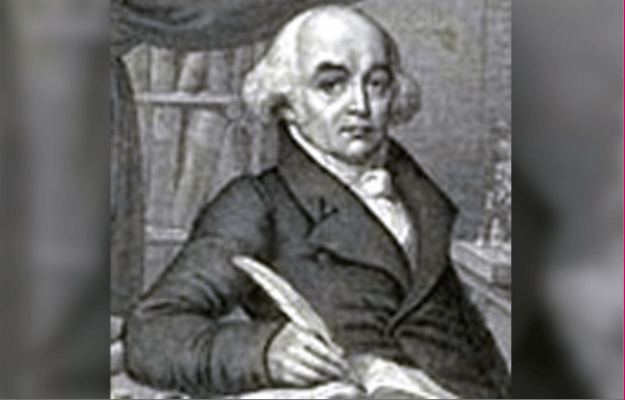Samuel Hahneman - The Founder of Homeopathy

‘A physician’s highest and only calling is to heal the
sick, to cure as it is termed’
Samuel Hahneman 1755 - 1843
Samuel Hahnemann, born on April 10, 1755, in Meissen, Germany, plays an important role in the history of medicine. As the founder of homeopathy, he introduced innovative approaches to medical treatment and dedicated himself to a more humane and individualised practice, leaving a lasting impact on alternative medicine.
The Discovery of Homeopathy
Hahnemann began his medical studies at the University of Leipzig in 1775. His rigorous education focused on the conventional medical practices of the time, including bloodletting, purging, and the use of toxic substances. Despite his formal training, Hahnemann grew increasingly disillusioned with these practices, finding them ineffective and often harmful.
Hahnemann’s experimental and inquisitive nature and his feelings about the then current medical practices led to his discovery of homeopathy. In 1790, he conducted an experiment with quinine, a substance used to treat malaria. By taking quinine himself, he noted that it induced symptoms similar to malaria, the condition it was supposed to treat.
This observation led him to formulate the principle of “similia similibus curentur” or “like cures like.” According to this principle, a substance that causes symptoms in a healthy person can, when administered in a highly diluted form, cure similar symptoms in a sick person. This idea formed the cornerstone of homeopathy.
Hahnemann’s research into this principle led him to develop a series of homeopathic remedies based on the same concept. He believed that dilution and succussion (vigorous shaking) enhanced the remedy’s healing power while minimising potential side effects.
Holistic Treatment
Hahnemann emphasised treating the whole person rather than focusing solely on the disease. He believed that understanding the patient’s physical, emotional, and psychological state was crucial for effective treatment. This holistic approach aimed to address the root causes of illness rather than merely alleviating symptoms.
Individualised Medicine
In homeopathy, practitioners tailor remedies to the individual’s unique symptoms and constitution. Hahnemann’s practice centered around this individualised approach, contrasting sharply with the more standardised treatments of conventional medicine.
Minimum Dose
Hahnemann introduced the concept of the minimum dose, where remedies are highly diluted to enhance their efficacy while minimising potential side effects. This principle challenged the prevailing medical practices of his time and remains a defining feature of homeopathic treatment.
Global Spread
Hahnemann’s influence extended beyond Germany, with homeopathy gaining acceptance and recognition in various parts of the world. Homeopathic societies and medical schools were established in Europe and the United States, and the practice spread to other countries, including India and South America.
In India, homeopathy integrates into the national healthcare system and enjoys widespread practice. The global spread of homeopathy reflects the enduring appeal of Hahnemann’s principles and ongoing interest in alternative and complementary medicine.
Homeopathic remedies are made, as they always have been, from naturally occurring substances from the animal, vegetable and mineral kingdoms and have been tried and tested in practice for over 200 years. Only a very minute amount of the active ingredient is used in a specially prepared diluted form. You can mix homeopathy safely with conventional medicine. In fact, some people use homeopathy to help them come off their medication.
Hippocrates said "It is more important to know what sort of person has a disease than to know what sort of disease a person has", and homeopathy is a system of medicine that uses this philosophy.
Samuel Hahnemann revolutionised medicine with his innovative principles and dedication to a more humane and individualised practice. Despite challenges and controversies, his legacy endures in the continued practice and study of homeopathy.
Hahnemann’s emphasis on holistic and patient-centered care remains relevant today, reflecting the ongoing interest in alternative and complementary approaches to health. His contributions have left an indelible mark on medicine, shaping how we understand and approach healing and wellness.
